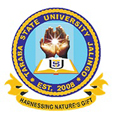The Role of ICT in the Practice of Legal Profession in Nigeria: Challenges and Prospects
Baba Isa Sanda Benisheikh PhD
Department of Private Law, Faculty of Law University of Maiduguri, Borno State, Nigeria.
Email: benisheikhi@gmail.com
&
Yahaya Alhaji Dunoma PhD
Department of Language and Liberal Studies Ramat Polytechnic Maiduguri, Borno State
Email: Yahayadunoma08@gmail.com
Abstract
This paper examines the role of ICT as a technology based access in promoting the effective and efficient practice of the legal profession. It is an indisputable fact that legal matters became acute, that legal profession as an apparatus has no choice other than to employ the use of technologies to curb problems. Legal profession is a profession that practices law in different capacities, which include impacting legal education through teaching, learning and research: litigation practice, soliciting, adjudicating, prosecution, etc. ICT assists the profession to exercise its activities with the use of adequate information. For the effective practice of the legal profession, information is indispensable, as a valuable resource. In making legal profession more attractive, there is the need to acquire ICT facilities in legal institutions which will contribute positively in the provision of information services, and in facilitating the work. As an indispensable means for developments, ICT has great influence in academic research, obtaining of clients’ brief, and preparation of legal documents, soliciting, filing of court processes, dispensation of justice and other professional activities through improved communication and access to a range of current legal information resources by overcoming time, distance,and other barriersbetween membersofthe legal profession,their students,clients and others. This paper considers ICT’s like computers whether desktop, laptop, palmtop, I-pad, etc, and considers the practice of the legal profession in general in relation to legal information, its significance, challenges and proffer recommendations.
Introduction
ICT stands for Information Communication Technology; it is an umbrella term that includes all technologies for the manipulation and communication of information. Information is defined in the Black’s Law Dictionary1 to mean fact or details about something, to collect, gather or receive, or to obtain information.
The word communication has several meanings, depending on the context and the purpose: hence there is no acceptable definition of communication,2 for the purpose of this paper, communication is a means of exchanging ideas and thoughts between
